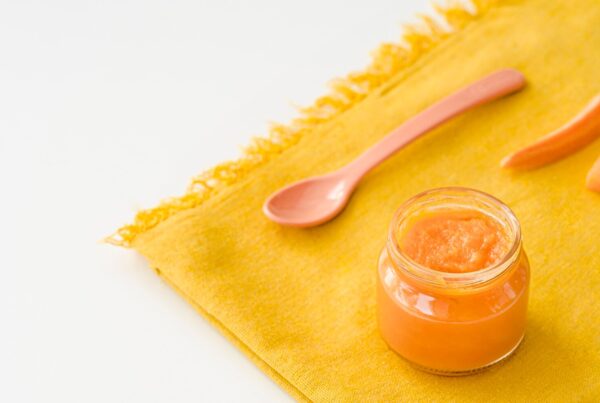
Honey has been used for centuries as a natural remedy for various ailments, including wound healing and cough relief. However, recent studies have shown that honey also possesses potent antibacterial properties, making it a viable alternative to traditional antibiotics.
Honey’s healing properties can be attributed to its high sugar content, low pH level, and hydrogen peroxide production. These factors work together to inhibit bacterial growth and promote healing.
Unlike traditional antibiotics, which can lead to bacterial resistance and unwanted side effects, honey is a natural and safe option for fighting infections and promoting overall health.
Key Takeaways:
- Honey has antibacterial properties and can be used as a natural alternative to traditional antibiotics.
- Honey’s healing properties are due to its high sugar content, low pH level, and hydrogen peroxide production.
- Honey is a safe and effective option for fighting infections and promoting overall health.
The Antibacterial Properties of Honey
Honey has been used for centuries as a natural remedy for various ailments, including infections. The antibacterial properties of honey make it a powerful alternative to traditional antibiotics.
Several studies have demonstrated honey’s ability to inhibit the growth of various bacteria, including those that are resistant to antibiotics. This is due to the high sugar content of honey, which creates an osmotic effect that dehydrates bacteria and prevents their growth.
In addition, honey contains natural hydrogen peroxide, which also has antibacterial properties. This potent combination of sugar and hydrogen peroxide makes honey a formidable antibiotic agent.
The Antibacterial Properties of Honey
| Bacteria | Honey’s Antibacterial Activity |
|---|---|
| Escherichia coli (E. coli) | Inhibited growth |
| Staphylococcus aureus (S. aureus) | Inhibited growth and prevented biofilm formation |
| Pseudomonas aeruginosa (P. aeruginosa) | Inhibited growth and prevented biofilm formation |
These antibacterial properties make honey an effective treatment for various infections, including respiratory, urinary tract, and skin infections. In some cases, honey has been found to be more effective than traditional antibiotics.
Furthermore, honey’s healing properties are not limited to just its antibacterial effects. Its anti-inflammatory and antioxidant properties also contribute to its therapeutic benefits as a natural remedy.
Overall, honey’s powerful antibacterial properties make it a potent natural alternative to traditional antibiotics. It can inhibit the growth of bacteria and provide effective treatment for various infections, while also offering additional therapeutic benefits.
Honey as a Natural Remedy
Aside from its antibiotic properties, honey offers a wide range of therapeutic benefits and can be used as a natural remedy. It has been used for centuries to treat various ailments, from minor colds to serious infections.
Honey is a natural sweetener, but it also contains bioactive compounds such as flavonoids and phenolic acids that have antioxidant and anti-inflammatory properties. These compounds help to boost the immune system and protect the body from harmful bacteria and viruses.
When used as a natural remedy, honey can be an alternative to traditional antibiotics, which can have negative side effects and contribute to the development of antibiotic-resistant bacteria. Honey offers a safer and more sustainable solution for treating infections.
There are many ways to use honey as a natural remedy. One of the most popular methods is to mix honey with warm water and lemon to relieve sore throats and coughs. Honey can also be applied topically to wounds and burns to promote faster healing and prevent infection.
It is important to note that not all honey is created equal. Raw, unprocessed honey is the most effective for its healing properties, as it has not been pasteurized or processed, which can destroy the beneficial compounds. Look for honey that is labeled as raw or organic to ensure you are getting the highest quality.
In summary, honey is not only a powerful antibiotic but also a natural remedy for a variety of health concerns. With its healing properties and therapeutic benefits, honey is an excellent alternative to traditional antibiotics and should be considered as a staple in any natural medicine cabinet.
Honey for Infections
Honey has been shown to be effective in treating various types of infections, making it a valuable natural alternative to traditional antibiotics. Its healing properties come from a combination of factors, including its high acidity, low water content, and the presence of hydrogen peroxide.
The use of honey for medicinal purposes dates back centuries, with ancient Egyptians and Greeks using it to treat wounds and infections. In modern times, research has confirmed its antibacterial properties and effectiveness in fighting certain types of bacteria.
Honey can be used to treat respiratory infections, such as bronchitis and pneumonia. Its soothing properties help to ease inflammation and relieve coughs, while its antibacterial properties fight the underlying infection. Additionally, honey can be effective in treating urinary tract infections, as it can help to flush out harmful bacteria from the urinary tract.
When applied topically, honey can also be effective in treating skin infections and wounds. Its antibacterial and anti-inflammatory properties help to prevent infection and promote healing. In fact, honey has been shown to be particularly effective in treating burn wounds, with studies demonstrating faster healing times and reduced scarring when honey is used.
It is important to note that while honey can be effective in treating infections, it should not be used as a replacement for medical treatment when necessary. It is always important to consult with a healthcare professional for proper diagnosis and treatment.
Honey for Wound Healing
Honey has been used for centuries as a natural remedy for wound healing. Its antibacterial properties make it effective in preventing infections, while its anti-inflammatory and antioxidant effects promote faster healing. Honey can also provide a protective barrier for the wound and prevent further damage.
One of the most well-known uses of honey in wound healing is for burn treatment. A study published in the International Journal of Surgery found that honey was significantly more effective in promoting healing and preventing infection in burns compared to conventional treatments.
In addition to burns, honey can also be used for other types of wounds, including ulcers and surgical wounds. A review of various studies on honey for wound healing found that it can reduce healing time and improve overall wound condition.
How to Use Honey for Wound Healing
Honey can be applied topically to the wound, either directly or as part of a wound dressing. Medical-grade honey is recommended for wound healing as it has been sterilized and has consistent antibacterial properties.
Before applying honey to the wound, clean it thoroughly with water and gentle soap. Apply a thin layer of honey to the wound and cover it with a sterile dressing. Change the dressing and reapply honey every 24-48 hours, or as directed by a healthcare professional.
It is important to note that honey should not be used on wounds that are infected or deep. If the wound does not improve within a few days or shows signs of infection, seek medical attention.
Conclusion
Honey’s antibacterial, anti-inflammatory, and antioxidant properties make it a valuable natural remedy for wound healing. Its effectiveness in promoting faster healing and preventing infection has been supported by various studies. Honey can be applied topically to the wound, either directly or as part of a dressing. However, caution must be exercised, and medical advice sought in case the wound does not improve, or shows signs of infection.
The Therapeutic Uses of Honey
Beyond its powerful antibiotic properties, honey has long been used for its therapeutic benefits. Here are some of the ways in which honey has been used as a natural remedy:
- Cough relief: Honey has been shown to be as effective as over-the-counter cough syrups in reducing coughing and improving sleep quality in children. Its natural sweetness can also make it a more enjoyable cough suppressant for adults.
- Sore throat soothing: The antibacterial and anti-inflammatory properties of honey can help soothe sore throats and alleviate associated symptoms. Adding honey to warm tea or lemon water can provide additional comfort.
- Immune support: The high antioxidant content of honey can help boost the immune system and protect against cellular damage from free radicals.
While more research is needed to fully understand the therapeutic uses of honey, these findings showcase its potential as a natural and effective remedy for a range of ailments.
 Using Honey as an Antibiotic
Using Honey as an Antibiotic
Honey can be used as a natural alternative to traditional antibiotics, making it a popular choice for those looking to avoid the potential side effects of pharmaceuticals. To use honey as an antibiotic, it is best to opt for raw, unpasteurized honey, as it contains the highest concentration of antimicrobial compounds.
One way to use honey as an antibiotic is to consume it orally. You can mix a teaspoon of raw honey in warm water or tea and drink it up to four times a day to soothe sore throats, reduce coughing, and support overall immune health.
Honey can also be used topically for wound healing and to prevent infections. To use honey for wound healing, apply a thin layer of honey directly on the wound and cover it with a sterile bandage. Change the dressing regularly and continue until the wound has healed.
It is important to note that honey should not be used as a sole treatment for severe infections, and medical attention should be sought if symptoms persist or worsen.
Incorporating honey into your daily routine can be an easy and natural way to utilize its antibiotic properties. Whether consumed orally or used topically, honey is a versatile and effective natural remedy for various infections and wounds.
Research and Evidence
Over the years, honey has been extensively studied for its antibacterial properties and therapeutic benefits. Research has shown that honey has a broad spectrum of activity against different types of bacteria, including antibiotic-resistant strains.
One study published in the Journal of Antimicrobial Chemotherapy found that honey is effective in inhibiting the growth of MRSA, a type of bacteria that is resistant to many antibiotics. Another study published in the Journal of Wound Care showed that honey can help heal wounds and reduce the risk of infection.
The healing properties of honey can be attributed to its high sugar content, low pH, and hydrogen peroxide-producing enzymes. These properties work together to create an environment that is inhospitable to bacteria and promotes healing.
The use of honey in wound care and infection treatment has been documented since ancient times. In fact, honey was used as a natural remedy for various ailments for centuries before the discovery of antibiotics.
Today, the use of honey as an antibiotic and natural remedy is gaining popularity, as people seek alternatives to traditional antibiotics that can have harmful side effects.
While more research is needed to fully understand the mechanisms of honey’s antibacterial activity, the existing evidence supports the use of honey as a natural antibiotic and an effective remedy for various infections and wounds.
Conclusion
Overall, honey is a powerful healer with natural antibiotic properties that offer numerous benefits. As discussed, honey can effectively combat various infections and promote wound healing, making it an excellent natural remedy. Additionally, its therapeutic uses extend beyond its antibiotic properties, as it can also support overall immune health and alleviate coughs and sore throats.
To fully harness the benefits of honey as an antibiotic, it’s essential to use it correctly. Incorporating honey into your diet or applying it topically can offer a natural alternative to traditional antibiotics. However, it’s always advisable to consult with a medical professional before using honey as a sole treatment option for bacterial infections.
The research and evidence supporting the use of honey as an antibiotic are promising, showcasing its effectiveness in promoting healing and fighting bacteria. With its numerous benefits and healing properties, honey is a valuable addition to any natural remedy toolkit.
FAQ
Q: What are the benefits of using honey as an antibiotic?
A: Honey has natural antibacterial properties and can be an effective alternative to traditional antibiotics. It can help inhibit the growth of various bacteria and promote healing.
Q: How can honey be used to treat infections?
A: Honey can be used topically or consumed orally to help treat various infections, including respiratory, urinary tract, and skin infections. Its antibacterial properties help fight off harmful bacteria.
Q: Can honey help with wound healing?
A: Yes, honey can promote faster wound healing and prevent infections. It can be applied topically to wounds, burns, and ulcers to aid in the healing process.
Q: What are some other therapeutic uses of honey?
A: In addition to its antibiotic properties, honey can also help alleviate coughs, soothe sore throats, and support overall immune health.
Q: How can I incorporate honey into my daily routine as an antibiotic?
A: Honey can be consumed orally, added to tea or warm water, or applied topically to wounds. It is important to follow any guidelines or precautions to ensure safe and effective use.
Q: Is there research supporting the use of honey as an antibiotic?
A: Yes, there is research and evidence that showcases the effectiveness of honey as an antibiotic. Studies have shown its ability to fight bacteria and promote healing.




